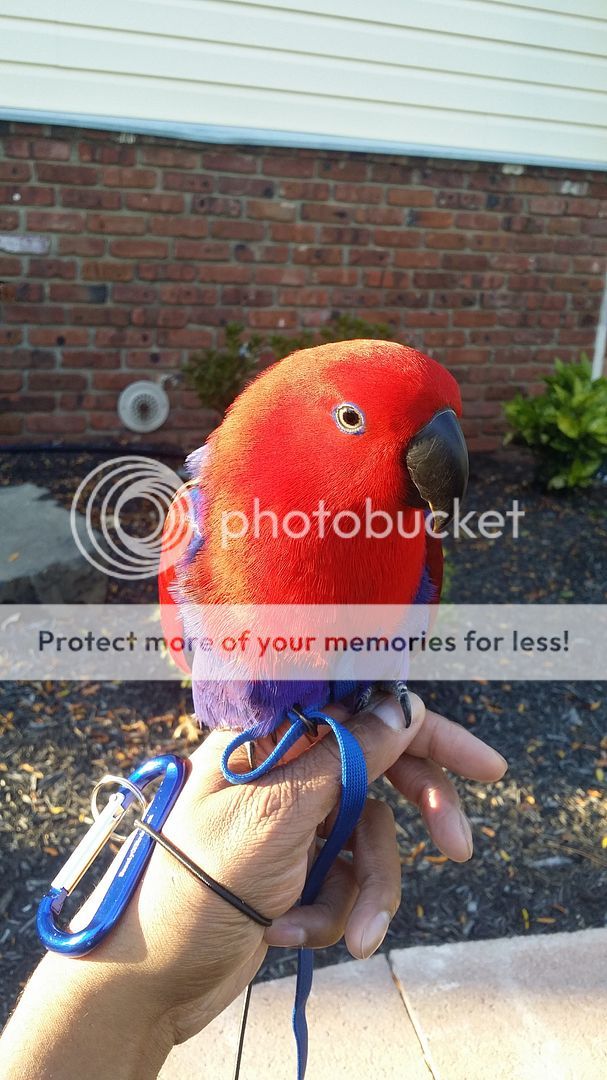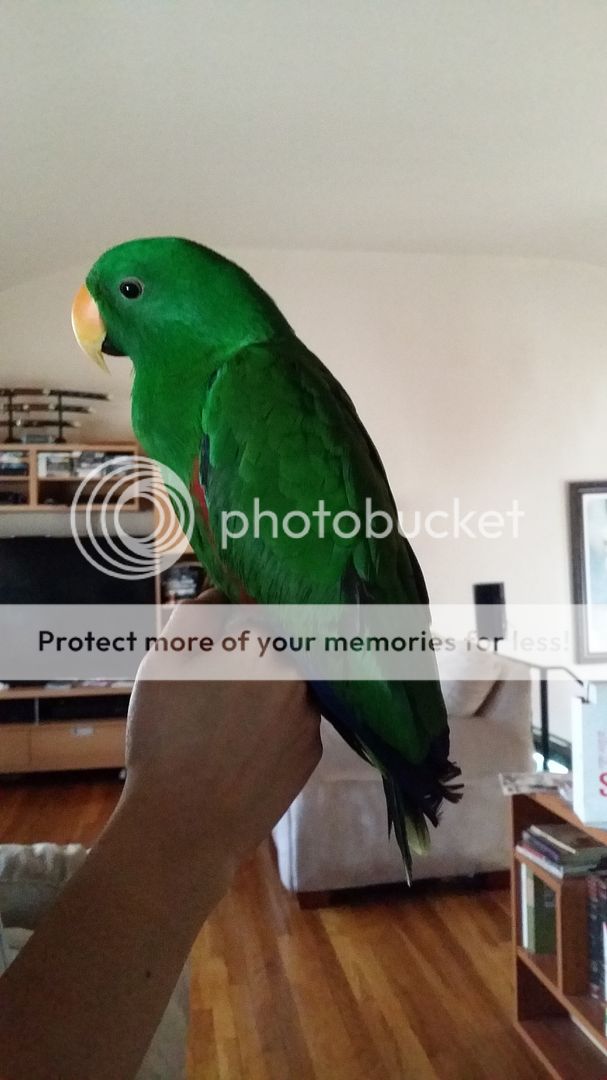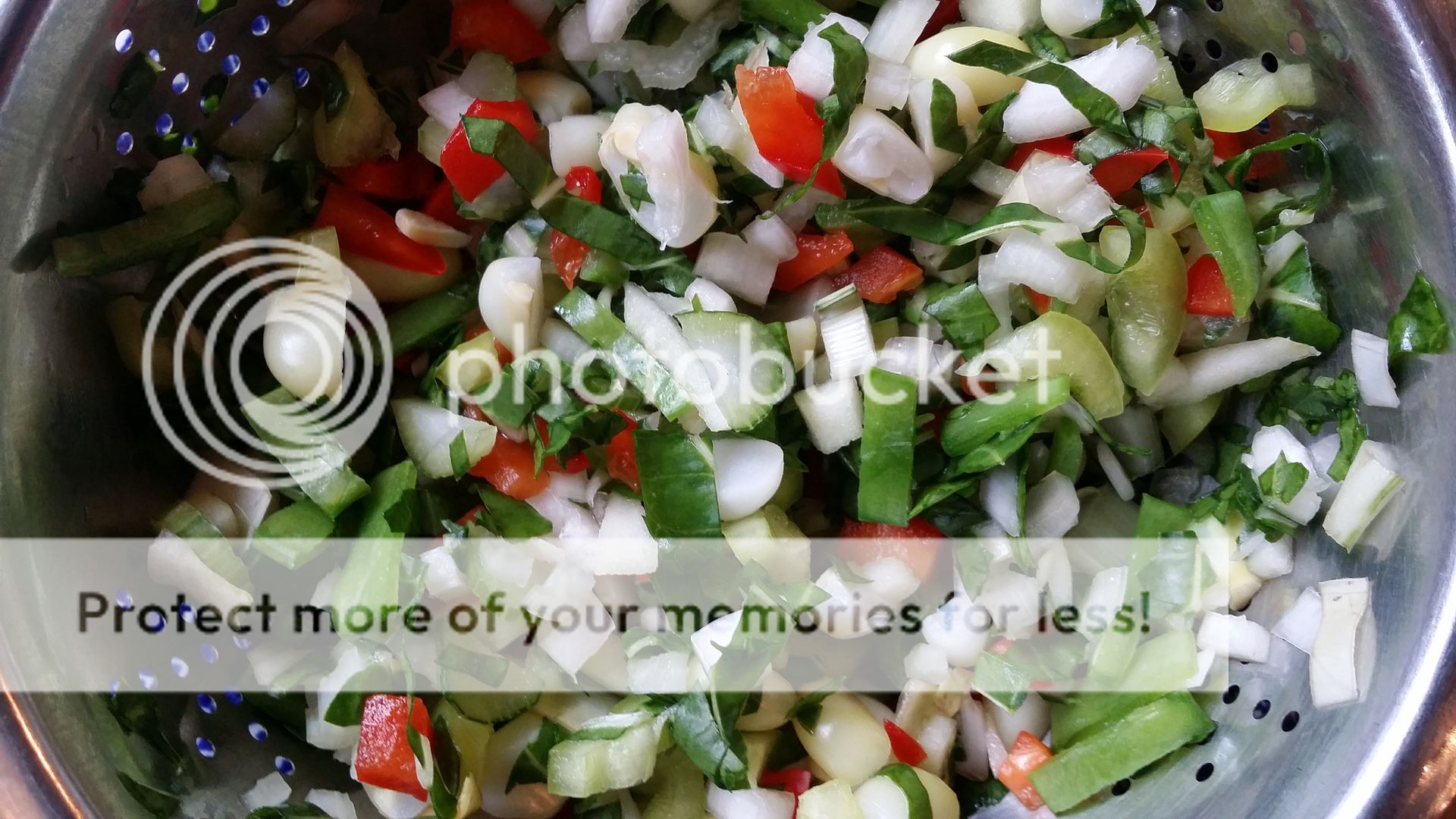Shae26
New member
- May 30, 2015
- 70
- 0
- Parrots
-
Odie, Luna, Zoe & Panda (cockatiels), Oscar (rainbow lorikeet), Bandit (green cheek conure),
Indy (indian ringneck), Max (Eclectus)
Hi guys
I need some help. On Monday I am driving 2 hours to pick up a 5 week old Eclectus baby from a friend of mine who really shouldn't have bought him in the first place. She's a uni student and is taking a 5 year course and somehow thought it would be a good idea to get a parrot that has extensive dietary needs and much, much more attention than she would be able to provide.
The breeder won't take him back which doesn't surprise me seeing as he's already been paid (lets face it, what reputable breeder would sell a 5 week old parrot to a clueless uni kid who has never owned more than a budgie in her life?) and she doesn't just want to sell him on to someone else, so she called me. I am a very experienced hand raiser with several different species (namely cockatiels, rosella's and rainbow lorikeets) so she figured he'd be better off with me than a random person.
SO. I have spent the past two days reading pretty much everything I can about raising an eclectus as this would be my first. I am confident that I will be able to raise him well (I work from home so time and attention are not limited). I have an "empty nest" with my last clutch of babies weaned and gone to their new forever homes.
I am pretty much set for nutritional needs for when he's older. I already make up a "chop" mix for my current birds which contains a mixture of veggies, legumes and grains, and from what I have read, this will be suitable for the Ekkie as well. My current birds also get fresh fruit served every day, and a small amount of seeds and pellets served usually every other day. They also get scrambled eggs a couple times a week which they all go nuts for.
I already have all of the equipment I need such as brooder, feeding utensils, gram scales etc.
So anyway, I have compiled a list of questions that I figured would be best answered by Ekkie owners. I thank you in advance for your help!
1. He is only 5 weeks old and (very obviously) still on formula. At this age, how much should I be giving him, and how many times a day? I am aware that Ekkies can take a long time to feed and keeping the formula at the correct temperature during the feed is essential.
2. At roughly what age do chicks begin foraging, and is my usual weaning mix okay? (millet, softened raw or lightly steamed veggies, small amounts of soft fruits, some seeds to play with, I also offer a shallow plate of chop for them to experiment with even though it usually just ends up all over their faces and feet)
3. I abundance wean all of my chicks, but roughly what age would you say is an average weaning age?
4. Are there any specific foods that I need to avoid? Other than the obvious ones like chocolate and avocado.
5. I have read that pellets are not a good idea for Eclectus. Should I just leave them out of his diet, or is he okay to have small amounts? Either way is perfectly fine, whatever is healthiest for him.
6. How much chop would you recommend I feed him when he is weaned? I read that 4 tablespoons per serve is appropriate for weaned babies under 6 months. Thoughts/suggestions?
That's about all for right now. I am confident that I can do well by this baby, but I want to have as much info as possible and a feeding plan in place when I get him home.
Any and all help will be greatly appreciated!
I need some help. On Monday I am driving 2 hours to pick up a 5 week old Eclectus baby from a friend of mine who really shouldn't have bought him in the first place. She's a uni student and is taking a 5 year course and somehow thought it would be a good idea to get a parrot that has extensive dietary needs and much, much more attention than she would be able to provide.
The breeder won't take him back which doesn't surprise me seeing as he's already been paid (lets face it, what reputable breeder would sell a 5 week old parrot to a clueless uni kid who has never owned more than a budgie in her life?) and she doesn't just want to sell him on to someone else, so she called me. I am a very experienced hand raiser with several different species (namely cockatiels, rosella's and rainbow lorikeets) so she figured he'd be better off with me than a random person.
SO. I have spent the past two days reading pretty much everything I can about raising an eclectus as this would be my first. I am confident that I will be able to raise him well (I work from home so time and attention are not limited). I have an "empty nest" with my last clutch of babies weaned and gone to their new forever homes.
I am pretty much set for nutritional needs for when he's older. I already make up a "chop" mix for my current birds which contains a mixture of veggies, legumes and grains, and from what I have read, this will be suitable for the Ekkie as well. My current birds also get fresh fruit served every day, and a small amount of seeds and pellets served usually every other day. They also get scrambled eggs a couple times a week which they all go nuts for.
I already have all of the equipment I need such as brooder, feeding utensils, gram scales etc.
So anyway, I have compiled a list of questions that I figured would be best answered by Ekkie owners. I thank you in advance for your help!
1. He is only 5 weeks old and (very obviously) still on formula. At this age, how much should I be giving him, and how many times a day? I am aware that Ekkies can take a long time to feed and keeping the formula at the correct temperature during the feed is essential.
2. At roughly what age do chicks begin foraging, and is my usual weaning mix okay? (millet, softened raw or lightly steamed veggies, small amounts of soft fruits, some seeds to play with, I also offer a shallow plate of chop for them to experiment with even though it usually just ends up all over their faces and feet)
3. I abundance wean all of my chicks, but roughly what age would you say is an average weaning age?
4. Are there any specific foods that I need to avoid? Other than the obvious ones like chocolate and avocado.
5. I have read that pellets are not a good idea for Eclectus. Should I just leave them out of his diet, or is he okay to have small amounts? Either way is perfectly fine, whatever is healthiest for him.
6. How much chop would you recommend I feed him when he is weaned? I read that 4 tablespoons per serve is appropriate for weaned babies under 6 months. Thoughts/suggestions?
That's about all for right now. I am confident that I can do well by this baby, but I want to have as much info as possible and a feeding plan in place when I get him home.
Any and all help will be greatly appreciated!
Last edited:









